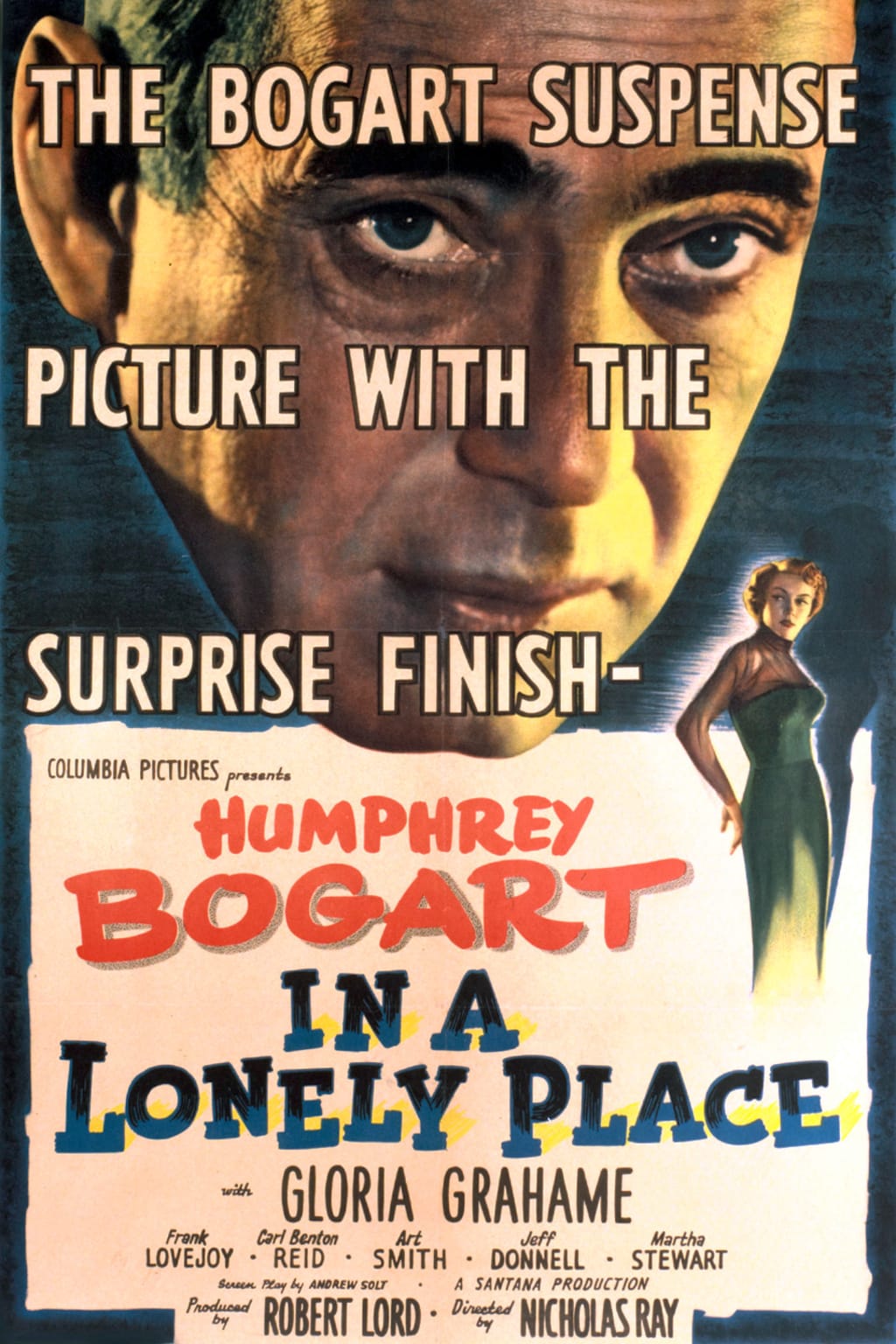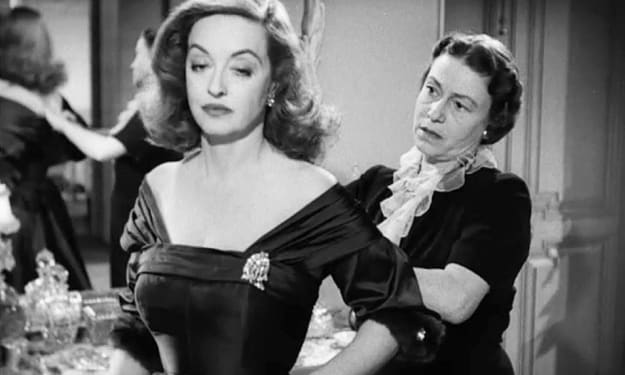In a Lonely Place (1950)
Loneliness as the not-so-new Pandemic

Last week, the World Health Organisation (WHO) declared loneliness to be a global public health concern.
How do we understand loneliness?
My 1940s screen writer persona knows about loneliness all too well.
The world is tough now. The world is always tough. The world of Film Noir is the toughest, the bleakest, the loneliest.
In a Lonely Place (1950) sees Bogart at his finest, playing the outsider, the temperamental, the disconnected. Bogart plays Dixon Steele (Dix) a washed up screen writer. He hasn’t had a hit since before the war. He is almost unemployable, because of his drinking, his temper and his off-kilter personality.
Ten minutes into the film we’ve seen him start two fights. Dix Steele lights another cigarette.
Loneliness, it has been demonstrated, is as bad for your health as a fifteen-a-day cigarette habit.

Dix has served his country in the war. Soldiers need to trust their platoon, but they also watch them die. Screenwriters have to trust the Hollywood machine with their words, but to Dix they are all just a bunch of “popcorn salesman.”
Loneliness is a distressing state. It’s the unmet need for connection and trust. But Dix doesn’t trust.
And this leaves Dix alienated, empty and out-of-control. He is a masterclass in loneliness, even when surrounded by company.
The Hollywood of the late 1940s was an untrusting place. The House Un-American Activities Committee created lesions and fissures between friends and colleagues. Surveillance, threats and accusations flying frenzied and panicked. Denouncing the tactics of the Committee resulted in the jailing of the Hollywood Ten and blacklisting of other professionals. Defiance, distrust, double-crossing scarred the creative landscape.
In a Lonely Place is about Hollywood’s paranoia, wrapped up in the suspicions and fears of Dix. Autograph hunters, actresses needing a role, executives wanting the next hit, agents demanding their cut, all interacting without connecting.
Dix is a man with a moral code:
“How many times, I won’t work on something I don’t like.”
A moral code, but violent impulses.
He has a quick wit, and dark obsessions.
He is lonely.

And so is Laurel Grey (played with fragility and fragmented tenderness by Gloria Grahame).
Because Hollywood is a dangerous town for women too. Never quite beautiful enough, or too beautiful, teetering on stardom or doomed to insignificance. While the men lost their freedom for principles, women never had it in the first place. Their bodies were a site for titillation, even when they’re murdered. The Black Dahlia murder of Elizabeth Short in 1947 saw newspapers scramble for the scoop at the cost of the investigation. A story of a death, not a life.
In a Lonely Place shares this fascination, so that a woman’s murder is a plot point, not a tragic loss of potential. It only matters inasmuch as it impacts on the man accused. It is a masculine melodrama, concerned with male emotions.
When Dix talks about the murder he is cool – unperturbed.
“Well, I grant you, the jokes could've been better, but I don't see why the rest should worry you - that is, unless you plan to arrest me on lack of emotion.”

Dix has a chance of reconnection, of love with Laurel.
The most famous lines:
“I was born when she kissed me. I died when she left me. I lived a few weeks while she loved me.”
Said whilst Dix and Laurel are in the car. He drives erratically, swerving and then side-sweeping into another vehicle. His violence erupts in front of Laurel and her trust is replaced with fear.
Gloria Grahame was married to Nicholas Ray (Director) at the time of the filming, but their marriage was faltering, on the verge of collapse. Grahame gives a whole-hearted, desperate performance of a controlled woman. But then she had been forced to sign a contract that stipulated:
"my husband [Ray] shall be entitled to direct, control, advise, instruct and even command my actions during the hours from 9 AM to 6 PM, every day except Sunday ... I acknowledge that in every conceivable situation his will and judgment shall be considered superior to mine and shall prevail."

Loneliness is disorientating.
And that is the aim of a Film Noir. Comedies aim to make us laugh. Melodramas aim to make us weep. Horror movies to scare. Film noir aims to throw us into the high seas of alienation.
If we want to understand loneliness, Noir is the genre to choose. It is about the marginal, the outsiders, the alienated.
But understanding is not a cure.
Dix is not a role model.
I just wish he didn’t look so darned cool while he fails at life.
My next review will be a comedy…

If you've enjoyed what you have read, consider subscribing to my writing on Vocal. If you'd like to support my writing, you can do so by leaving a one-time tip. Thank you.
About the Creator
Rachel Robbins
Writer-Performer based in the North of England. A joyous, flawed mess.
Please read my stories and enjoy. And if you can, please leave a tip. Money raised will be used towards funding a one-woman story-telling, comedy show.






Comments (2)
Bogart Was the original King of Cool, before Steve McQueen. My favorite actor, bar none. It's been years since I've seen In a Lonely Place. My favorite Borgarts are Casablanca, which I've had the pleasure of seeing on the big screen once years ago during TCM's celebration of its 70th anniversary. A close second is The Big Sleep and of course the others with Lauran Becall, To Have and Have Not, Dark Passage. Sanatan Productions was Borgart's own production company, named after his boat, the Sanatana.
Wonderful review of a film I have yet to see. Love film noir and bogart always plays the 'tough' (fragile-broken) male to perfection. Great commentary on loneliness too. Well done all round